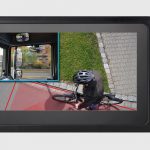Industry Talk
Regular Industry Development Updates, Opinions and Talking Points relating to Manufacturing, the Supply Chain and Logistics.Store Wars: Return of the Cashier, or The Self-checkout Strikes Back?

Two very different solutions to cutting checkout queues this Christmas have been adopted by rival retailers. Booths, the upmarket northern supermarket chain, has scrapped most of its self-service tills in response to consumer demand, while Tesco is trialling a new scan-free self-checkout that doesn’t even require shoppers to download an app.
The home delivery expert ParcelHero says that supermarkets have been forced to face up to the unpopularity of self-service checkouts or lose custom to online grocers such as Ocado this Christmas.
ParcelHero’s Head of Consumer Research, David Jinks M.I.L.T., says: ‘The switch to self-service tills has infuriated many shoppers because they are perceived to be unreliable and impersonal. Booths’ solution is to bring back cashiers but Tesco’s is to use cutting-edge automation, eliminating the need for repetitive and unreliable scanning completely.
‘Booths’ dramatic U-turn, axing the vast majority of self-service tills at its 28 stores, certainly looks to be a popular move. Its customers say they like to have somebody to talk to and the convenience of a conveyor belt. Their enthusiasm is understandable. While self-service tills are supposed to speed up queues, we have all experienced delays while trying to attract staff’s attention for help. Unexpected items in the bagging area, alcohol age checks and barcodes not scanning all add to the frustrations.
‘However, technology might now offer an even better solution to these problems than the return of staffed checkouts.
‘Checkout-free stores have so far had mixed fortunes in the UK. Amazon has actually closed several of its Amazon Fresh till-free outlets, including the first store it opened just over two years ago in West London. Significantly, Tesco has now introduced an even fresher approach. It’s trialling a scan-free service that doesn’t even require customers to download an app. Instead, before they leave the store, shoppers at Tesco’s Express GetGo store in Fulham Reach are automatically presented with a list of the items they have picked up. Customers can then check the list and pay as usual. The in-store technology uses a sensor kit to determine shoppers’ movements and product classifications to create digital shopping baskets. This sophisticated tech also eliminates the faff of downloading the app required to use Tesco’s existing GetGo stores. The technology has been developed by the retail tech company Trigo. Trigo describes its EasyOut system as a combined automated store operations tools and seamless checkout experience.
‘It will be fascinating to see which solution – the return of the human or improved automation – ultimately wins the day. In some ways, the home delivery grocery market is still in its infancy. If online retailers, such as Ocado, continue to grow, the end of huge out-of-town hypermarkets is entirely conceivable, particularly if such stores continue to provide a poor experience at the tills. Predicting this trend, many of Britain’s favourite retailers, such as Tesco and Sainsbury’s, have already developed their own online services. Alternatively, as in the case of M&S and Ocado’s joint deliveries, they have made a deal with the devil and partnered with an online grocery service.
‘As retail settles to a new equilibrium, it will be those retailers with strong in-store and online sales that will ultimately triumph in a post-Covid world. ParcelHero’s influential report “2030: Death of the High Street” has been discussed in Parliament. It reveals that, unless retailers develop an omnichannel approach, embracing both online and physical store sales, the High Street as we know it will reach a dead-end by 2030. Read the full report at: https://www.parcelhero.com/content/downloads/pdfs/high-street/deathofthehighstreetreport.pdf










